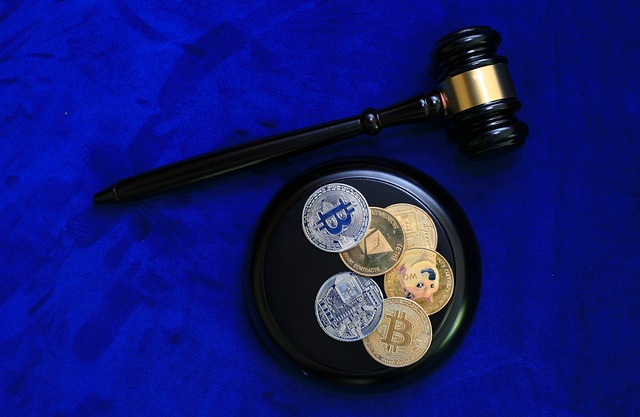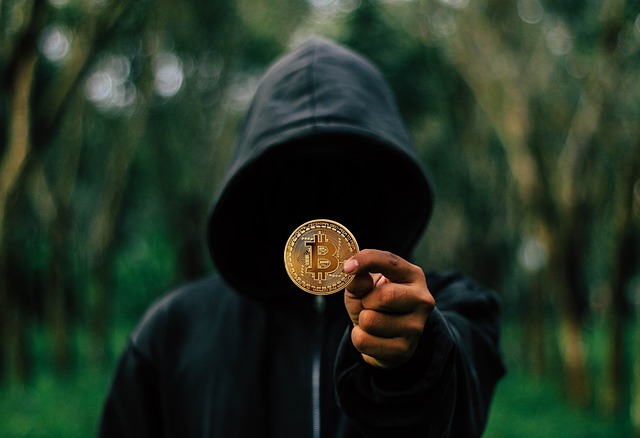Unlocking the Secrets of Crypto Wallets: Your Comprehensive Guide to Maximum Security and Profitability
Author: Jameson Richman Expert
Published On: 2025-01-22
Prepared by Jameson Richman and our team of experts with over a decade of experience in cryptocurrency and digital asset analysis. Learn more about us.
The world of cryptocurrency is evolving at a breathtaking pace. With the excitement of new coins emerging and exchanges sprouting up almost daily, your choice of a crypto wallet plays a critical role in your investment journey. Understanding how to effectively choose, utilize, and secure your crypto wallet is essential not only for safeguarding your investments but also for maximizing your profits. In this article, we will explore the intricacies of crypto wallets, the different types available, their features, and how to choose the right one for your cryptocurrency needs.

What is a Crypto Wallet?
At its core, a crypto wallet is a digital tool that allows users to store and manage their cryptocurrencies. Unlike traditional wallets that hold physical money, a crypto wallet doesn’t actually store cryptocurrency itself; rather, it holds the private and public keys needed to access and manage these currencies. This distinction is vital, as safeguarding these keys is crucial for securing your assets in the volatile market of cryptocurrency.
Types of Crypto Wallets
There are several types of crypto wallets, each designed to cater to different needs and security levels. Understanding these types will empower you to make informed decisions about your cryptocurrency investments.
1. Hot Wallets
Hot wallets are connected to the internet and are typically easier to access and use. They are recommended for daily transactions and quick access to your cryptocurrencies. While hot wallets offer great convenience, they are also more susceptible to hacking and cyber threats. Some popular hot wallets include:
- Exchange Wallets: Wallets provided by exchanges like Binance, where crypto is stored directly in your account on the exchange.
- Mobile Wallets: Wallet applications available for download on smartphones (e.g., Trust Wallet, Coinbase Wallet).
- Desktop Wallets: Software installed on your computer, providing easier controls over your assets (e.g., Exodus, Electrum).
2. Cold Wallets
Cold wallets, on the other hand, are offline storage solutions, making them significantly more secure from online threats. They are ideal for long-term storage and large amounts of cryptocurrencies. Cold wallets come in two main types:
- Hardware Wallets: Physical devices (e.g., Ledger Nano S, Trezor) designed for secure storage of private keys offline.
- Paper Wallets: A physical printout of your cryptographic keys and QR codes. While they are immune to hacking, they can be easily lost or damaged.
Why Security Matters
In the rapidly changing landscape of cryptocurrencies, security must be your top priority. High-profile hacks and devastating scams occur all too frequently. According to recent studies, billions of dollars in cryptocurrency have been stolen due to insufficient security measures. Hence, it's crucial to implement solid strategies for safeguarding your wallet.
1. Use Strong Passwords
Your password must be unique and complex to prevent unauthorized access. Consider using a password manager to generate and store secure passwords.
2. Enable Two-Factor Authentication (2FA)
Using 2FA adds an additional layer of security by requiring a second form of verification during the login process. Make sure to enable it for your exchange and wallet accounts.
3. Keep Software Updated
Regular updates for wallets and applications fix vulnerabilities that hackers can exploit, so always keep your software up to date. For hardware wallets, regular firmware updates are also crucial.

Choosing the Right Crypto Wallet
With so many options available, how do you decide which wallet is best for your needs? Follow these guidelines to make an informed decision:
1. Determine Your Needs
Ask yourself how often you will be accessing your cryptocurrencies and what types of transactions you expect to execute. Daily traders may benefit from hot wallets, while investors holding assets long-term might prefer cold wallets.
2. Consider Security Features
Evaluate the security offerings of each wallet. Look for features such as encryption, backup options, and recovery measures.
3. Research Community Feedback
Investigating user experiences can provide valuable insights into the usability and reliability of a wallet. Make sure to check reviews and ratings before committing.
How to Backup Your Crypto Wallet
Backing up your wallet ensures that you can access your funds if your primary wallet fails or is compromised. Here’s a basic guide to performing a wallet backup:
1. Create a Recovery Phrase
Many wallets allow you to generate a recovery phrase—a series of words that serve as a backup to access your wallet.
2. Store Your Backup Securely
Keep your backup in a secure location, away from potential threats, such as fire or theft. Consider using a safe deposit box for added security.
3. Regularly Update Your Backup
Whenever you receive new cryptocurrencies or make significant changes, update your backup to reflect these changes.
Final Thoughts: Your Entry into the Crypto World
Choosing the right crypto wallet is a fundamental step for anyone entering the world of cryptocurrency. After evaluating the types of wallets and their respective security features, you're ready to secure your investments.
If you are looking for a reliable exchange to buy, sell, and store your cryptocurrencies, Binance is a top contender in the market. With its user-friendly interface, advanced trading options, and top-notch security measures, Binance has become a go-to choice for both newcomers and experienced traders alike. You can sign up [here](https://accounts.binance.info/en/register?ref=12093552) to get started with your cryptocurrency journey.

Building Your Cryptocurrency Knowledge
As a new investor or user in this digital currency landscape, it's critical to continue your education. The crypto world offers endless resources from forums, courses, and webinars to keep you informed and prepared for any challenges ahead. Take the time to read up on market trends, regulatory news, and emerging technologies that can affect your investments.
In conclusion, your journey in the cryptocurrency markets hinges on solid knowledge and security practices. As you navigate the complexities of wallets, exchanges, and digital currencies, remember that preparedness and continuous learning are your best allies in this thrilling adventure.